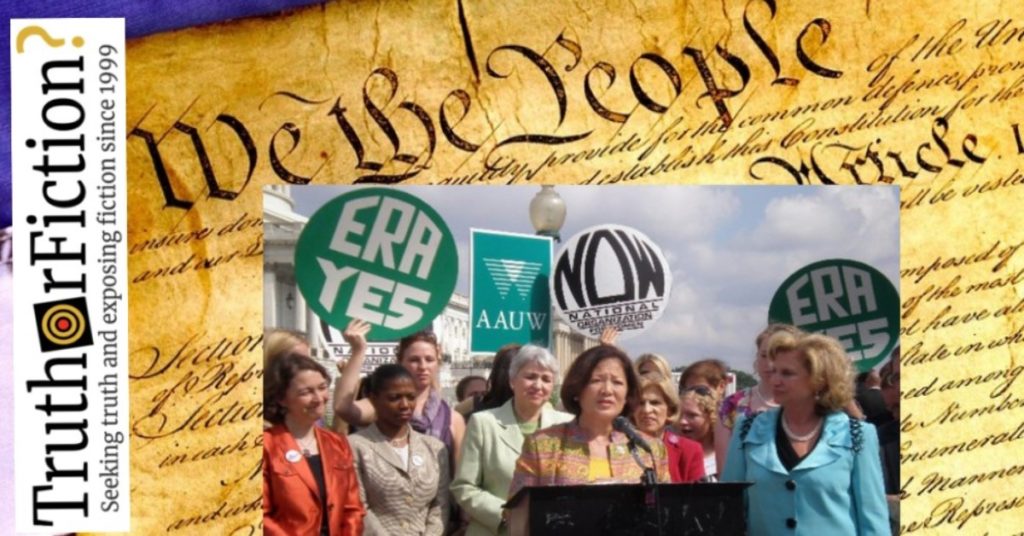Instead of ending a decades-long political battle, the ratification of the Equal Rights Amendment (ERA) by Virginia lawmakers on January 15 2020 likely means the next step in an ongoing legal fight.
The state House of Delegates and Senate voted to add the amendment to the United States Constitution, making it the 38th state to do so. For an amendment to become law, it must first be passed by both houses of Congress with a two-thirds majority and then be ratified by 38 out of 50 states.
However, the Virginia vote came nearly four decades after the final deadline set by Congress for its ratification; as of June 30 1982, only 35 states had officially approved the ERA, which was first passed in both the Senate and the House ten years earlier.
The ratification of the ERA in Virginia followed similar votes in Nevada in 2017 and Illinois a year later. In November 2019, the House Judiciary Committee advanced a joint resolution revoking the deadline, which would pave the way for the ERA to become a law.
But a month after the resolution was advanced, attorneys general for three states — Alabama, Louisiana, and South Dakota — filed a federal lawsuit arguing that the national archivist should be blocked from adding the Equal Rights Amendment to the Constitution because of the expiration of the 1982 deadline.
In arguing against the ERA to become a law, Alabama Attorney General Steve Marshall engaged in transphobic fearmongering and pushed a little disinformation of his own in the process.
“What we’ve seen, for example, with states that have passed their own version of the Equal Rights Amendment is that they’ve allowed for boys to participate in girls athletics,” Marshall told National Public Radio. “We’ve seen that several states have required taxpayer-funded abortions.”
In reality, the amendment states, “Equality of rights under the law shall not be denied or abridged by the United States or by any State on account of sex.” Twenty-one states have a version of the amendments included in their respective constitutions.
The Justice Department also weighed in against ratifying the ERA sooner than later, saying in a December 2019 opinion that because of the expiration of the original deadline that the measure would have to be passed again by Congressional vote and then re-sent for ratification.
“The fact that it’s almost 2020 and there are still states that are trying to block women’s equality from being a part of the U.S. Constitution is repugnant,” Virginia Attorney General Mark Herring said about the lawsuit in December 2019.
On March 17 2021, the House passed a joint resolution removing the deadline for ratifying the ERA. The resolution was approved on a 222-204 vote.
Updated March 17 2021, 11:54 a.m. PST: Updated with note on the passage of a House joint resolution removing the deadline for approval of the Equal Rights Amendment.
- Virginia Vote Sets Up Fight Over Women's Rights Constitutional Amendment
- Frequently Asked Questions
- House Judiciary Committee Passes Resolution Removing Ratification Deadline for the ERA
- Alabama, Louisiana And South Dakota Sue To Block Equal Rights Amendment
- Ratification of the Equal Rights Amendment
- House Passes Joint Resolution to Remove ERA Deadline

